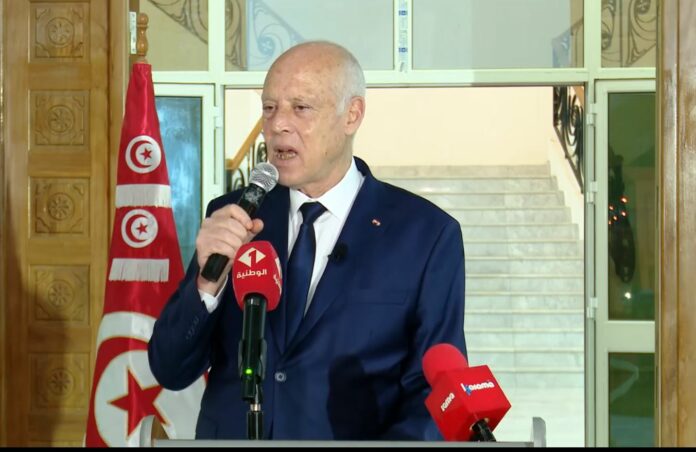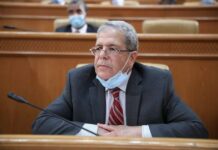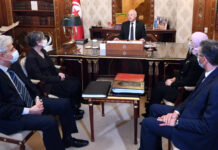In a speech to a crowd in Sidi Bouzid on Monday evening (September 20, 2021), President Kais Saied announced transitional provisions. He stressed that the extraordinary measures will continue, that a head of government will be assigned on the basis of transitional provisions, and announced that he will present a new law for elections in the country.
What is the fate of the People’s Assembly, whose terms of reference are suspended? What is the outcome of the 2014 Constitution?
Saied to impose the fait accompli.
In a reading of the president’s speech, constitutional law professor Abdul Razzaq al-Mukhtar told JDD Tunisie that Chapter 80, from which the President of the Republic was launched, does not allow the constitution to be infringed and its provisions and operatives to be infringed on, providing for the return of normal state circles, i.e. the return of the constitutional situation and supposedly regulated by the existing constitution, he said.
Al-Mukhtar said an interim regulation of the authority amounted to declaring the death of the 2014 constitution, as it would replace the current and current regulation of public authority, noting that the suspension of the constitution was effectively legal.
He explained that all steps of President Qais Said amount to imposing a fait accompli and not legitimate, considering that the government’s declaration on the basis of the constitution means a return to the pre-July 25th, which Said rejects or in accordance with the interim regulation and thus a violation of the Constitution.
Going from what to what?
The same position was expressed by constitutional law professor Salsabil Qalibi in a blog post on her own page, asking,” the transitional provisions that the president called an interim regulation of power will allow the transition from what to what, if not from one constitution to another, as happened with the transitional provisions in March 2011.”
Chapter 80 itself is a special regulation, i.e. exceptional authority (it was supposed to abide by it), and therefore there is no need to add transitional provisions or temporary regulation of power, Qalibi said.
“Sovereignty for the people”
Constitutional law professor Abdul Razzaq al-Mukhtar told JDD Tuniise that the President’s assertion in his speech yesterday of the word “sovereignty for the people” is a referral to Chapter III of the Constitution and thus the people’s determination of their fate through rebutt and election.
In the absence of conditions and mechanisms for going to the referendum, Ateh explained that he would build this step on the principle of “sovereignty for the people”, saying that he was “evading the current constitutional text under any title, albeit of popular will”.
He stressed that modifying any word in the text is a change of constitutional engineering, i.e. Said changed the rules of the game as it proceeded, he said. He noted that parliament will also be dissolved under constitutional provisions and Said will hold the legislative power by issuing decrees.
Rifi-JDD











